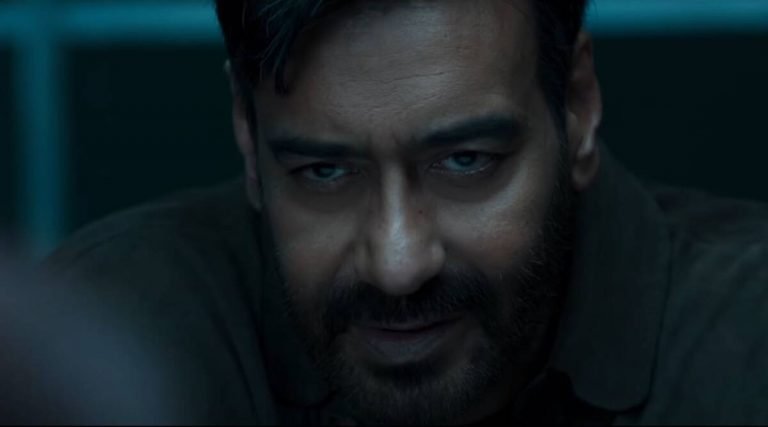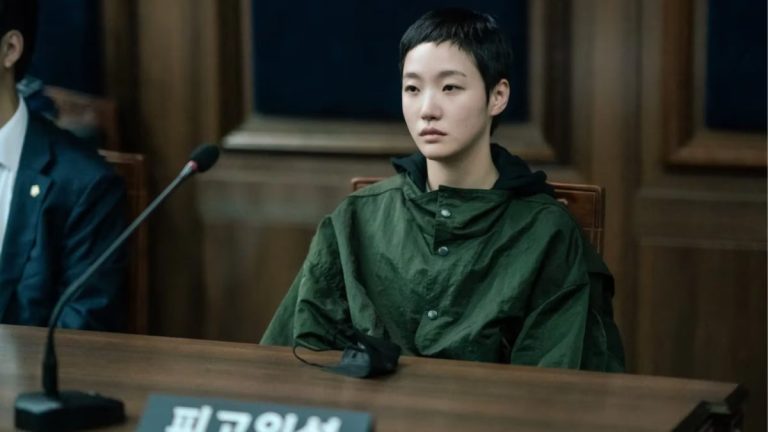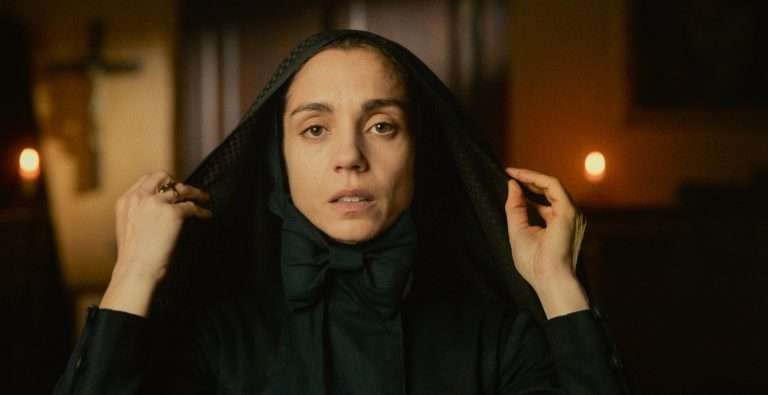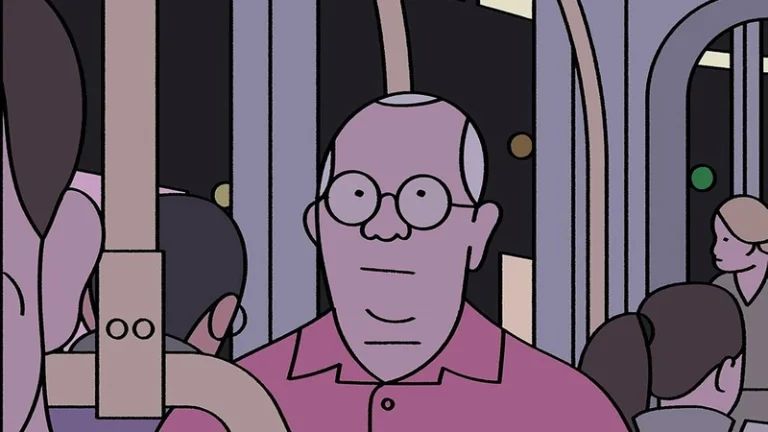“This [The Mist] has become a rather potent metaphor for where I think humanity is poised at the moment. It becomes a total microcosm of our culture and what we’re going through: the divisiveness, the fact that reasonable people are getting ground up in the machinery and agendas of the unreasonable people who are in power, the extremists holding sway, and the rest of us just getting dragged along for the ride.”
Through his words, Frank Darabont astutely introduces his third Stephen King adaptation, “The Mist,” which is to some degree symptomatic of the fractured American experience following 9/11 and an age fraught with the rise of religious fundamentalism. In “The Mist,” Frank Darabont applies juxtapositions and multiplicities of society to express a horror that is as much visual as lexical.
In “The Mist,” an unassuming supermarket has become a glasshouse sanctuary housing the Maine locals from a menacing mist that has engulfed the entire community. However, being uncomprehendingly surrounded by death and terror, the community inside soon finds itself getting splintered over its varied beliefs on what surrounds it. Soon, the state inside becomes so fragile that the mist outside seems more inviting.
The Mist (2007) Plot Summary & Movie Synopsis:
David Drayton, a poster artist, is hand-painting a poster (a reference to Roland the Gunslinger from Stephen King’s “The Dark Tower” series.) for the commercial studio in his studio room at his home in Maine as a terrifying storm rages outside. As the electricity goes out, David goes downstairs with his wife, Stephanie, and son, Billy, leaving his unfinished work behind in his studio room.
The next morning, David laments, not knowing better, as the storm causes a tree to fly through the glass window and wreck the painting. As they are taking stock of the damage, David and Stephanie find the mist forming on the lake to be odd, especially since it is coming down from the mountain. David, however, leaves the thought of the mist and goes to his neighbor, Brent Norton, to lecture him for their smushed boathouse caused by the latter’s tree. However, the situation does not escalate, given Norton’s own damage, and they leave for the town to buy essentials. On their way, David and Brent, accompanied by Billy, notice several military trucks. David says that the trucks are from up the mountain, where an army base is located for The Arrowhead Project.
Once at the grocery supermarket, the Food House, David notices that it is a particularly crowded day as everyone is anticipating a storm and stocking up. Everyone inside the supermarket is baffled to see the military and the police cars speeding down the street. David hears an MP order some young military officials to be on guard as their leaves have been canceled for unknown reasons. Just after a foreboding siren, a local, Dan Miller, comes running towards the store to warn of ‘something in the mist’ that has taken another local. Despite Dan’s advice, a local runs to leave in his car. But the mist engulfs him, and his scream indicates that he is gone, too. The managers lock the door to the supermarket. Within seconds, the mist rolls through the town and envelops the supermarket. Soon, an earthquake hits.
People inside the supermarket take turns to estimate the cause of the mist and the earthquake. One Mrs. Carmody, a religious lady who is taken seriously by no one, says it is the end of days. This infuriates others. Amidst this, a lady pleads with the others to help her get to her little children who are alone at home. Nobody agrees to help her, including David, who has his son to look after. To everyone’s dismay, the lady ventures out into the mist and disappears.
Acknowledging that they might have to stay inside the supermarket for an inordinate amount of time, that is until the mist subsides, the locals try to form a community.
When do David and others first confront what is inside the mist?
David goes to the loading dock in search of blankets for Billy. He notices the generator is emanating smoke. As he turns it off and prepares to return, he hears a mysterious noise and a thumping on the shutter door of the dock. Deputy manager Ollie Weeks, Mechanics Jim Grondin, Myron LaFleur, and Norm, the bag boy, go out into the loading dock to look for the source of the noise. None of them, except Ollie, believe David. Jim, Myron, and Norm take jibes at David and belittle him. Norm goes out to clean the exhaust pipe of the generator as something is blocking it. The shutter is rolled up, and a throng of carnivorous tentacles yanks Norm out of the dock. David manages to hack off a piece of the tentacle.
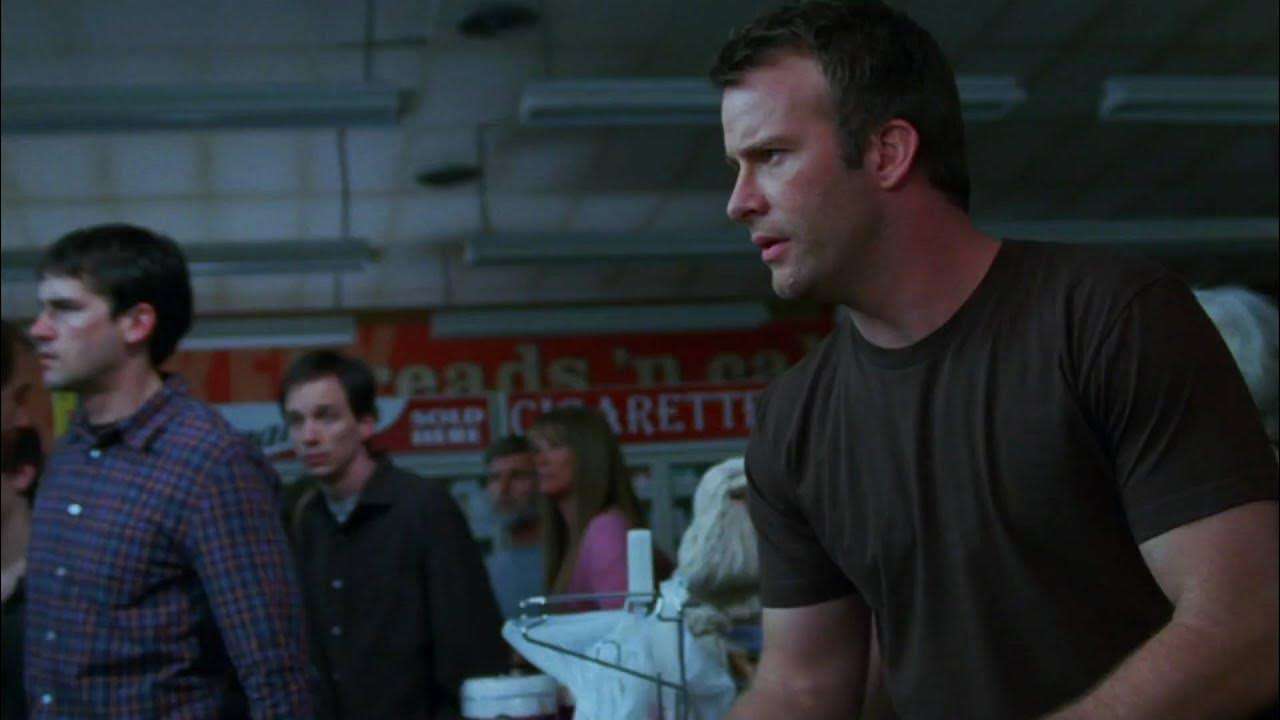
Back in the store, David tries to tell Brent about the tentacles, but Brent does not believe him. He accuses David of setting up an elaborate joke to humiliate him as a payback for the lawsuit that Brent had filed against him. Brent assumes that the men hold animosity towards him on account of being an out-of-towner.
David finally makes the announcement to the people in the supermarket that Dan was right about the presence of something in the mist. Some others, including the manager, Bud Brown, go back to the dock to inspect and return with the horrifying visual of the tentacle sizzling down to a darkened liquid. Ollie insists on barricading and fortifying the glass walls of the store, as these alone cannot withstand the blows of the mysterious tentacled creature.
Instead of helping others to prepare for the worst, a traumatized Mrs. Carmody exacerbates the atmosphere with her delusional utterances of divine retribution and expiation. She does not stop until she is slapped by Amanda Dunfrey, the new teacher at the local school. Brent, on the other hand, tries to form a group of people who are unswayed by any form of delusions – whether Biblical as propagated by Carmody or supernatural as claimed by David. David and his allies, which include Amanda, Dan, Ollie, and Irene Reppler, an old teacher, arrange for charcoal fluids and mop for torches. Amanda gives them her gun, which she keeps in her handbag.
What happens to those who venture out in the mist following Brent?
Following the loading dock incident, the patrons inside the supermarket divide themselves into three conspicuous groups with conspicuous leanings. The group that believes David’s claims comprises people who are adequately realists yet are perturbed by this inexplicable supernatural phenomenon. The second of Norton, as explained earlier, The third group is more like a cult of Mrs. Carmody, who is now no longer a hapless, ‘unstable’ woman. In fact, the situation has bolstered her stature.
Brent Norton is ready to leave the supermarket to seek rescue despite David’s constant plea against his idea. Before leaving, David requests Brent tie a clothesline around his waist, which will let the remaining ones know if he has crossed the 300-foot mark. A biker who offers to accompany Brent and his group agrees to have it tied around his waist.
The biker progresses safely for some time. But soon, David experiences a sharp tug at the lines, which goes haywire. David tries to drag the biker back after the line stops making movement. Only the lower half of the biker’s body returns. The biker’s death leads the remaining patrons to be convinced of the presence of unknown creatures in the mist.
What creatures break into the store?
At night, the store’s light invites the attention of a swarm of huge Scorpionflies that stick to the glass walls of the store. However, a flock of Pterobuzzards follow the flies and appear from out of nowhere. The pterodactyl-like creatures eat the flies and, in the process, cause several craters in the glass windows. As the creatures start squeezing into the store through the holes, the patrons start preparing torches to kill them. However, the fire torches cause a mishap, and one of them, Joe, catches fire. The creatures kill Sally, the clerk, and Tom. A woman named Patty, who has been taking care of Billy while David is busy, dies by suicide.
Sensing that Joe’s life is hanging by a thread and he needs a supply of antibiotics to fight the infection, the men decide to get medicines from the pharmacy next door. The next morning, David, Ollie, Jim, Irene Reppler, Wayne Jessup, Dan, Bobby Eagleton, and Mike Hatlen decide to go to the pharmacy to bring medical supplies. The group enters the pharmacy. During the process of collecting the supplies, they realize that the pharmacy has become a lair of Gray Widowers. All of them survive by a whisker, except for Joe’s brother, Bobby, and another patron, Mike. Shortly after they return, Joe dies.
How is the Arrowhead Project connected to all this?
The MP, who we see in the beginning, is found entangled in the cobweb in the pharmacy. He murmurs something– “It’s all our fault”– that concerns David and causes him to believe that the soldiers must know something about it. David confronts Wayne Jessup, one of the military officials who had a crush on Sally, over the MP’s final confession. While Mrs. Carmody, now a full-blown religious zealot, is addressing her congregation, David and his friends search for Wayne’s friends. They find the two friends have hung themselves in the loading dock. Wayne, who had come back from the pharmacy and told his friends about the MP’s words, is shocked to find that his friends have indeed hung themselves as they were claiming to do. David demands answers from Wayne on the questionable workings of the Arrowhead Project.

Jim, unable to negotiate with the trauma that fractured him due to what conspired in the pharmacy, has now joined Mrs. Carmody’s ‘cult.’ He notices the group enter the dock and drags Wayne out to expose him to the others. Jessup cries and begs the others to consider the fact that he was just stationed up in the mountain and not responsible for whatever has been going on. Jessup clears up the air and tells them that the Arrowhead Project was meant to open a portal to communicate with the other world.
The Mist that surrounds them is otherworldly, along with the monsters that are showing up outside the superstore. A livid Mrs. Carmody makes incendiary remarks and incites her followers by calling Wayne ‘a Judas in [their] midst’. Wayne is not spared. The butcher of the Food House, Mr. Mackey, plunges a knife into Wayne’s stomach a few times and throws him outside the store as an offering to the creatures outside. David and his friends, far fewer in number, helplessly watch. Wayne screams in pain and requests Jim to let him in, but a colossal Arachni-Lobster grabs him.
The Mist (2007) Movie Ending Explained:
Does staying inside the supermarket prove to be safe in the long run?
The atmosphere inside the grocery store is hostile as Mrs. Carmody has now turned into a malefic nemesis. Shared psychosis prevails over the rational communitarian approach. David understands that choosing to stay inside is now no longer a safe option for anyone with even the dimmest rationality left. As the group tries to sneak out, Mrs. Carmody intervenes. Mrs. Carmody threatens that going out of the store is against God’s will, and she would not allow that to happen. She incites her followers again, this time to sacrifice Billy and Amanda. However, Mrs. Carmody is gunned down by Ollie, and her followers no longer have the power to detain David and the others.
David, Billy, Amanda, Reppler, and Dan manage to board David’s Land Cruiser. However, Ollie is chomped down by the Arachni-Lobster. Myron and Ambrose become prey to the Gray Widowers. Bud runs back to the supermarket. David drives to his home but finds it completely enmeshed in the cobwebs of the Gray Widowers. He tries to look for Stephanie, but she is up against the wall. Her body is all pale and resembles a mummy entangled in the cobwebs. David is devastated and heartbroken but tries to drive to the south in the hopes of a clearer atmosphere. He keeps driving until the fuel hits the pan.
Realizing that they have no other option than to die, in the final moments, the adults make the enormously difficult decision of allowing David to shoot them, along with Billy, with Amanda’s gun and then for David to get out of the car and accept a painful death from the monsters in the mist. David breaks the promise he had made to Billy and kills everyone in the car to give them a quick death and relieve them from getting devoured painfully by the monsters outside. David then exits the car and waits for the monsters to get him.
However, as he looks over to the other side, he sees a military tanker cutting across the mist and driving past him. The mist subsides and David spots a line of military convoys carrying survivors of the mist. David recognizes one of the survivors – the woman who had left the supermarket early to be with her kids at home. The military exterminates all the cocoons and cobwebs with fire.
With the destruction/expulsion of the monstrous creatures, David surrenders and is brought to his knees by the realization that he killed his friends and his son unnecessarily as they were moments away from being rescued. Even more distressing is the fact that all this while David has been driving away from the rescue operation – had he remained in the market with the others, help would have arrived. There is nothing left for David now rather than to succumb to the enormously heavy brunt of guilt and misery.
The Mist (2007) Movie Themes Analyzed:
Fear and Terror in Modern Society
Despite their generic contours allowing affinity with the supernatural and the uncertified, horror and sci-fi genres have certain broad ideological tendencies and represent key moments of social history that help salvage their cinematic values instead of being discarded as plain pop culture artifacts. In its own aesthetic ways, the genre films persistently respond to cultural and national crises.
With The Guardian sealing its fate by claiming that the film “may one day be seen as America’s definitive post-9/11 movie,” critics like Terence McSweeney have argued that “The Mist” is an allegory of the post-9/11 American experience. Even Darabont has agreed on this multiple times.
McSweeney notes that the mechanics of the disaster-horror genre hinge on employing varied characters from different rungs of society to disburse the horror from the individual to the entire world. While the film introduces the out-of-town liberal Black American Brent Norton, it also includes profanity-spewing ‘redneck’ mechanics Jim and Myron. Similarly, an anti-government septuagenarian schoolteacher is given a level playing field with a social outcast who, by the end of the film, manages to amass a cult dancing to the tunes of her delusional speech.

Perhaps the earliest marker that fear has started to spread out its net in the minds of the patrons shows up during the loading dock episode. Despite David’s warnings, the mechanic and the bag boy insist on rolling up the shutters to see what is causing the noise. They start abusing Jim and make personal remarks about him when he tries to stop them. Ollie’s words prove to be important: “‘They’ve lost their sense of proportion; out there in the market, they were scared and confused. In here, there’s a problem they can solve, so they’re goddamn gonna solve it.”
The men who had little say back in the front of the supermarket over the developments outside now feel a tragic sense of security and control– tragic as it is false– as they prepare to fix the generator and thus get ready to fight the unknown. Even if the logical solution is to not venture out and wait for the creature to go away on its own, fear has taken away the capability to think rationally. Frank Darabont attempts to situate and put a lens on the subtexts of the fear that emerges in the fertile territory of the supermarket rather than go explore it in the monsters outside. In an interview, he proclaims:
“It’s always about that journey of the human condition. That’s what makes it particularly valid, particularly relevant. It’s an examination of fear. It’s an examination of people operating in a pressure cooker of fear where fear replaces reason. That’s why I’ve always loved this story. It wasn’t so much about the “mist” outside the windows with the groovy critters in it. It’s about what the people are going through inside the market.”
Fear and Religious Fundamentalism
The other strand of global fear that rears its head inside the supermarket is the one weaponized by Mrs. Carmody– religious fundamentalism. Mrs. Carmody’s congregation brings back memories from “True Detective” (season 1) when Rust Cohle and Martin Hart visit a traveling revival tent, and the visual and the aural landscape stirs a conversation between the two about religion. Rust asks, “What do you think the average IQ of this group is?” as he observes the mannerisms of a group of powerless individuals painfully unaware of the quagmire that pulls them down, swaying to the preachings of a pompadoured reverend. Rust endeavors to describe the fascination with the reverend:
“Transference of fear and self-loathing to an authoritarian vessel. It’s catharsis. He absorbs their dread with his narrative. Because of this, he is effective in proportion to the amount of certainty he can project. Certain linguistic anthropologists think that religion is a language virus that rewrites pathways in the brain, dulls critical thinking.”
Mrs. Carmody’s emergence in the supermarket as an invincible religious zealot is rooted in the deeply entrenched sense of fear among the people. While others, including David and Brent, grow miserable seeking help, Mrs. Carmody’s life force is revitalized, bolstered by the collective fear that she can fashion as she pleases. When Carmody goes into her vehement tirade:
“We are being punished for going against the will of God. For going against the forbidden rules of old. Walking on the moon! Yes! Yes! Or splitting his atoms. Or stem cells and abortions! And destroying the secrets of life that only God above has any right to!”
McSweeney astutely observes how it brings to mind Jerry Falwell, an American televangelist, a diatribe against ‘the pagans, and the abortionists, and the feminists, and the gays and the lesbians who are actively trying to make that an alternative lifestyle, the ACLU, People For the American Way, all of them who have tried to secularize America. I point the finger in their face and say, “You helped this happen”’ following 9/11.’
The ones who threaten to crucify Carmody initially find themselves on nodding terms with her as their frightened selves are deluded into believing that she is the only leader who seems to provide some certainty.


